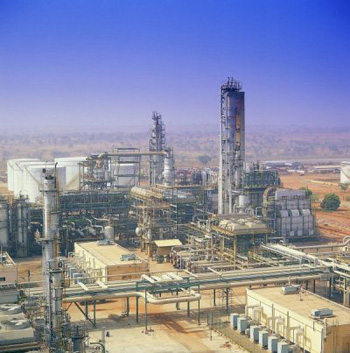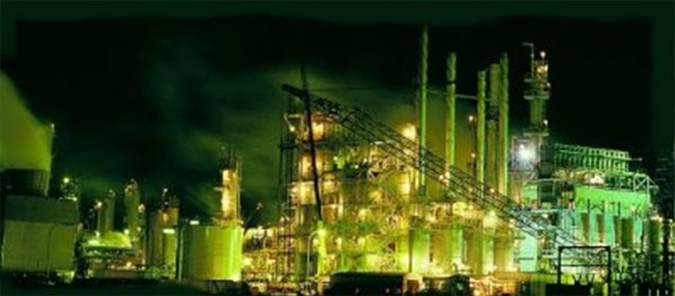 Menu
Menu
Various Types of Corrosion Inhibitors
Corrosion inhibitors come in different forms. They include Adsorption, Cathodic, Mixed and Vapor-phase inhibitors. Each type of inhibitor will have its own specific benefits and disadvantages. Therefore, it's important to know which one is right for your application.
Vapor-phase Corrosion Inhibitors
Vapor-phase corrosion inhibitors are used in a number of industries. They are effective, safe, and economical.
These inhibitors protect metals from corrosive environments by forming a thin molecular layer, which acts as a barrier and prevents water vapor from corroding. Unlike conventional contact corrosion inhibitors, vapor-phase inhibitors can protect all areas within a vessel, including crevices, insulation, and overhead spaces.
Among the largest segments of the corrosion inhibitors market is cooling water. The growth rate of this segment is projected to be high.
Increasing water consumption in emerging economies is driving the need for corrosion inhibitors. However, the growth rate in this market is expected to decrease in China and Brazil in the coming years. In addition, these economies will experience slower economic growth because of a weak economy and unstable political environment.
Another important segment of the market is the end-use industry. This sector includes the formulation and manufacturing of end-use products. For instance, an oil and gas company may manufacture an injection or spray product that can be applied to the inside of a pipeline. Normally, these products contain large volumes of dispersants and other functional components.
The global corrosion inhibitors market is projected to be USD 10.1 billion in 2026. During the forecast period, the market is expected to grow 4.9%. Nevertheless, the growth rate of the market is likely to slow down in China and Brazil due to the decline in the crude oil price.
Despite the decline in the crude oil price, the growth of the corrosion inhibitors market is expected to rebound in the years to come. Growth in this market is expected to be driven by stringent environmental regulations, increasing fuel and clean water demand, and infrastructural development in emerging economies.

Cathodic Inhibitors
If you are in the market for a new pipeline, you may be looking for a dependable corrosion inhibitor. It is important to remember that a corrosion inhibitor is not a magic bullet, it is simply a substance or combination of substances that is capable of blocking and preventing metals from corroding. Fortunately, there are a variety of corrosion inhibiting compounds and their applications are limitless.
The best way to determine which is the right inhibitor for you is to learn more about the specific application. For instance, what are the best materials to use in an above ground pipe? Using the right mix of coatings is the best way to protect your assets against corrosion. Also, do not forget to consider the environment. One way to combat this is to use a product containing organic compounds. This is particularly true if you are using a pipeline that may be prone to microbiological corrosion.
Another important consideration is the cost of a cathodic inhibitor. An inexpensive solution is to apply a coat of corrosion resistant epoxy. Alternatively, you can choose a more expensive approach that utilizes an above ground pipe. Moreover, a cathodic inhibitor may be able to restrict diffusion to the surface of the metal. In some cases, it might be a good idea to use an insoluble substance as a barrier between the metal and the atmosphere.
Another way to keep your investment afloat is to employ a cathodic inhibitor to keep the electrolysis process under control. You can find a cathodic inhibitor in the form of polyphosphates, a phosphate conjugated compound, or a phosphate ore. Depending on the application, you might need to find a specialized blend of these.
Mixed Inhibitors
Mixed inhibitors are compounds that can act as both anodic and cathodic corrosion inhibitors. They can be used in a variety of applications, including acid pickling, oil well acidizing, and acid descaling. They are also applied to vessels, pipes, and other metals in order to control corrosion.
Various natural products have been proposed as mixed inhibitors. Examples of these include plant seeds and roots. Other examples are zinc phosphates and tannic acid compounds.
Mixed inhibitors are not only effective, but they are also relatively cheap. This is because they are derived from inexpensive raw materials. Another advantage is that they can be easily applied. For example, you can fill a hollow nanocontainer with inhibitors and heat it up to form a protective film. The film acts as a barrier between the corroding metal and the acid solution, which reduces the surface reactivity.
Inhibitors are also commonly combined with anticorrosive pigments such as Zinc Phosphate. These compounds have been successfully tested in a variety of applications.
It is important to understand the basic processes involved in the inhibition of corrosion. If you want to choose the best corrosion inhibitor for a specific application, you need to consider its effectiveness, cost, availability, and environmental impact.
For example, the best corrosion inhibitor is one that accepts free electrons from the metal. Also, the most efficient inhibitor is one that forms a protective film. You should also take measures to ensure durability and maximum surface crack widths.
Some of the most popular mixed inhibitors are phosphates and silicates. Plant extracts have also been found to be effective corrosion inhibitors. However, their ability to act as anodic or cathodic inhibitors is not completely understood.

Adsorption Inhibitors
Corrosion inhibitors are chemicals used in water treatment, oil and gas production, metal treatment, and lubricants. These products are added to cooling waters, steam, and other types of liquids.
These inhibitors work by forming a protective film on the surface of the metal. This film limits moisture and oxygen diffusion and keeps the metal intact. It also slows down the corrosion process, thus preserving the metal's useful life.
A significant portion of the world's oil and gas industry relies on corrosion inhibitors. Without them, equipment would break down at a faster rate. Therefore, their use is vital to the industry.
In addition, it is important to note that many of these inhibitors are toxic. As a result, new legislation requires that they be safe for human use.
While these inhibitors are beneficial for a variety of applications, they can create headaches for downstream processes. That is why it is critical to invest in the right technologies to monitor and control the chemical injection of these treatments.
The decline in the crude oil price has impacted drilling and production activities, leading to lower demand for corrosion inhibitors. However, the global market for corrosion inhibitors is expected to grow at a steady rate in the coming years.
